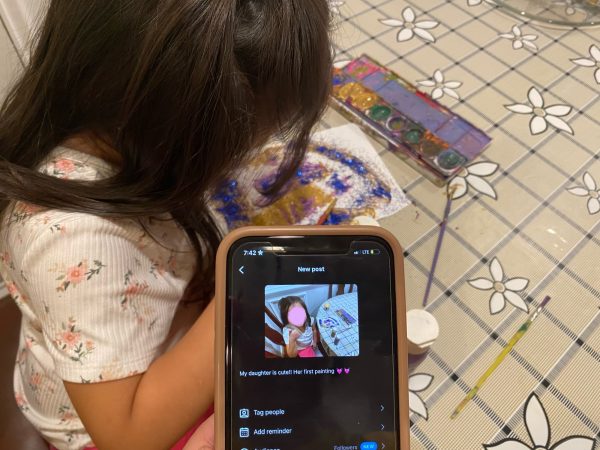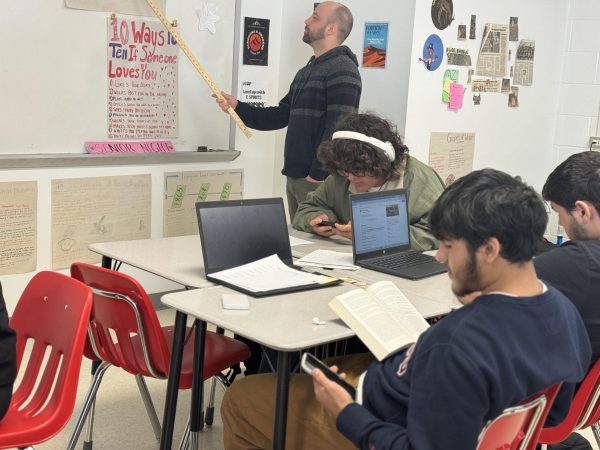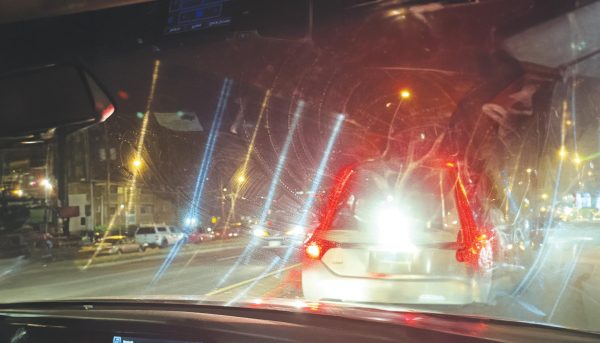To Snitch or Not to Snitch
Cheating on tests or homework is an act which has no toleration anywhere, especially college. We’re only a couple years away from college, and to have a strike on your record for cheating could ultimately affect your chance of getting into a good college, or one of your choice.
If you see it happening right before your eyes, the choice is up to you: rat the person out or stay quiet. In my opinion, I think the safest answer would be to not say anything.
One of the hardest situations to be in is when you see someone cheating on a test or a quiz.
If I was in that situation, staying out of it would be the safest thing to do because you wouldn’t have to deal with people trying to find out who told, and I personally would feel guilty if I confessed to a teacher.
On the other hand, what if you were cheating on a test? Would you want someone to snitch on you?
To be told on is possibly the most frightening thing that anyone could deal with in their school career, especially in high school.
Recently, the entire sophomore government honors classes was caught cheating on their midterm, because the answers were leaked. Some of the consequences they faced was having to retake a much more harder version of the test.
In some classes, the students were offered a chance to have the guilty person confess themselves, and the whole class wouldn’t have to retake the test.
Unfortunately, that person didn’t come forward, and the innocent students had to pay the price of those who chose to cheat.
Sophomore Casey Bonano, heard from the halls that a strike may have been put on transcripts, even though not everyone cheated. Bonano had her parents email the principle and one of the government teachers, Ms. Richburg, who helped put the rumor to rest that a strike was going to be put on our transcripts.
“My mom emailed Ms.Richburg and within twenty minutes, she emailed back saying that’s just a rumor” said sophomore Casey Bonano. Assitant Principal Mr. Schneider came into some classes to talk about the utter disappointment, and to remind the students of the code we follow from the SR&R booklet.
He mentioned how when you sign these booklets, they are contracts between students and the school. By understanding what the booklet says, students are abide to its rules.
This is one example of why cheating just shouldn’t happen in the first place.
Students work for the grade they have, and it is our own fault for not putting in the effort of studying. It’s in one of many instances like this that students wish teachers wouldn’t use the saying about how everyone in the class is bonded, rather than have an individual take the fall.
In high school, it has been well engraved in our minds that even if snitching is the right thing to do, getting caught for snitching can give you a bad reputation among your peers.
The simple fact that snitching and tattle tailing are both words with negative connotations helps to prove the point that it is easiest to just stay out of it.
Telling the truth could sometimes be seen as the annoying, or wrong thing to do, but it could also be something that saves a lot of people from getting into trouble for another person’s fault.
All in all, it comes down to what type of person you are. If your set of virtues are in the right place, then confessing to a teacher would seem to be the honest thing to do; not that keeping your knowledge to yourself makes you a bad person, it just feels as if you have to pick sides with either the teacher, or the students, which most definitely isn’t a situation someone would want to be in.
But keeping it to yourself is always an option, and is the option that seems the safest, because in high school, laying low and playing it safe will help you in the end.

Senior Yabi Bereket has been on the A-blast for four years. This year, she is the International Editor and has previously been editor for the Lifestyles...






